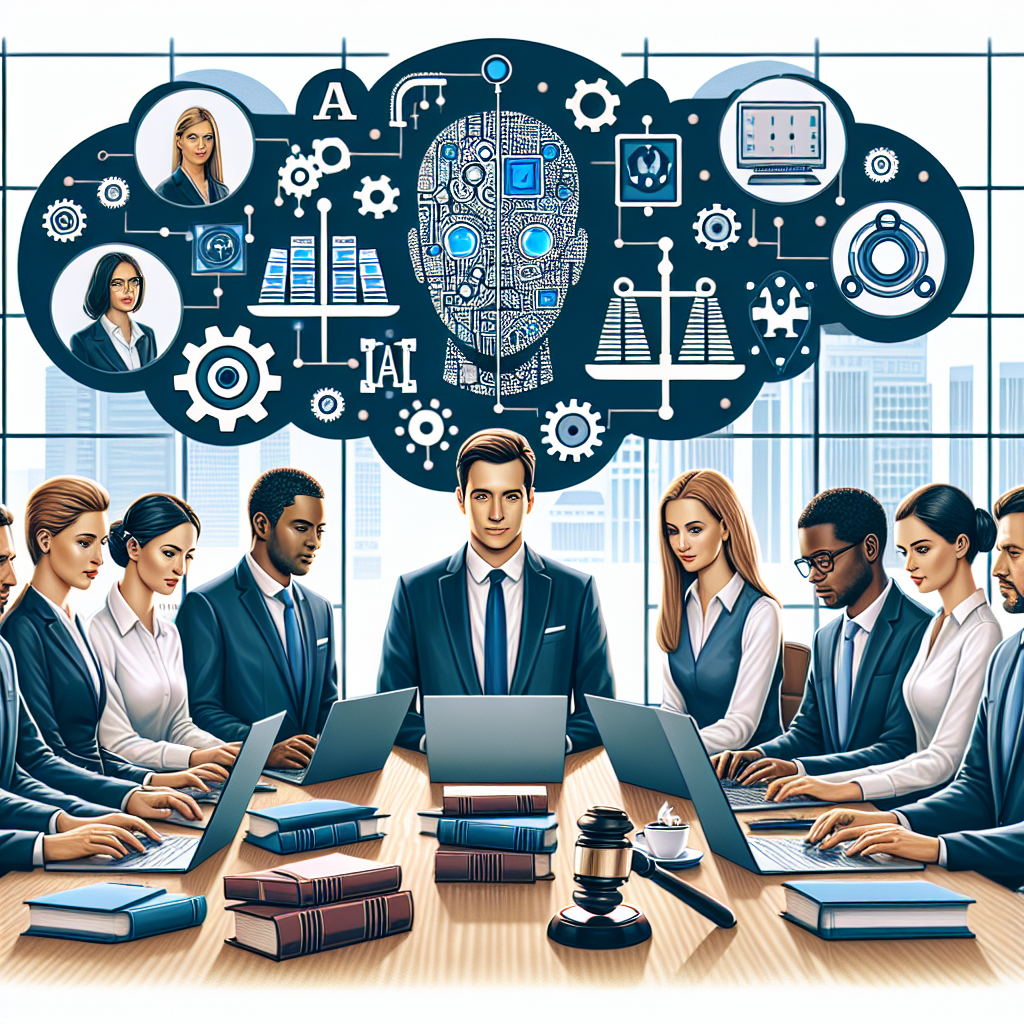The Impact of AI on Legal Workforce and Career Opportunities
Artificial intelligence (AI) has been making waves in various industries, and the legal sector is no exception. With the advancements in AI technology, the way legal professionals work is changing rapidly, leading to both challenges and opportunities for those in the field. In this article, we will explore the impact of AI on the legal workforce and the potential career opportunities that AI brings to the legal industry.
How AI is Changing the Legal Workforce
AI technologies, such as machine learning, natural language processing, and data analytics, have the potential to revolutionize the way legal professionals work. Here are some ways AI is impacting the legal workforce:
1. Automation of Routine Tasks: AI can automate repetitive and time-consuming tasks, such as document review, contract analysis, and legal research. This allows legal professionals to focus on more strategic and high-value work.
2. Improved Efficiency: AI can process and analyze vast amounts of data much faster and more accurately than humans. This can lead to increased efficiency and productivity in legal work.
3. Enhanced Decision Making: AI can provide legal professionals with valuable insights and predictive analytics to help them make more informed decisions. This can lead to better outcomes for clients and improved overall performance.
4. Cost Savings: By automating routine tasks and improving efficiency, AI can help law firms and legal departments reduce costs and increase profitability.
5. New Opportunities: AI is creating new job roles and opportunities in the legal industry, such as legal technologists, data analysts, and AI specialists. These roles require a combination of legal expertise and technical skills.
Career Opportunities in the AI-Driven Legal Industry
As AI continues to transform the legal industry, new career opportunities are emerging for legal professionals. Here are some of the key roles that are in demand in the AI-driven legal industry:
1. Legal Technologist: Legal technologists are responsible for implementing and managing AI technologies in law firms and legal departments. They work closely with both legal professionals and IT teams to ensure the successful integration of AI tools into legal workflows.
2. Data Analyst: Data analysts in the legal industry are responsible for collecting, analyzing, and interpreting data to provide valuable insights to legal professionals. They use AI technologies to process vast amounts of legal data and extract meaningful information.
3. AI Specialist: AI specialists in the legal industry develop and implement AI algorithms and solutions to automate legal processes, improve efficiency, and enhance decision-making. They have a deep understanding of AI technologies and their applications in the legal domain.
4. Legal Consultant: Legal consultants help law firms and legal departments navigate the complexities of AI adoption and integration. They provide strategic guidance on how to leverage AI technologies to improve legal services and drive business growth.
5. Compliance Officer: Compliance officers in the legal industry ensure that AI technologies are being used in a legal and ethical manner. They monitor and enforce data privacy regulations, ethical standards, and best practices related to AI in the legal sector.
FAQs
Q: Will AI replace lawyers and legal professionals?
A: While AI can automate routine tasks and improve efficiency in the legal industry, it is unlikely to replace lawyers and legal professionals entirely. AI technologies are tools that can enhance the work of legal professionals, but human expertise, judgment, and creativity are still essential in many legal tasks.
Q: How can legal professionals prepare for the impact of AI on their careers?
A: Legal professionals can prepare for the impact of AI on their careers by developing a strong understanding of AI technologies and their applications in the legal industry. They can also acquire technical skills, such as data analysis and programming, to stay competitive in the evolving legal workforce.
Q: What are the ethical considerations of using AI in the legal industry?
A: Ethical considerations of using AI in the legal industry include data privacy, bias, transparency, accountability, and fairness. Legal professionals must ensure that AI technologies are used in a legal and ethical manner, comply with regulatory requirements, and uphold professional standards.
Q: How can legal professionals stay relevant in the AI-driven legal industry?
A: Legal professionals can stay relevant in the AI-driven legal industry by embracing AI technologies, continuously learning and upskilling, adapting to new roles and responsibilities, and collaborating with AI specialists and technologists. It is essential to stay informed about the latest trends and developments in AI and their impact on the legal sector.
In conclusion, AI is transforming the legal workforce and creating new career opportunities for legal professionals. By leveraging AI technologies, legal professionals can automate routine tasks, improve efficiency, enhance decision-making, and unlock new possibilities in the legal industry. It is essential for legal professionals to embrace AI, develop new skills, and adapt to the changing landscape of the legal industry to stay competitive and succeed in the AI-driven future.

